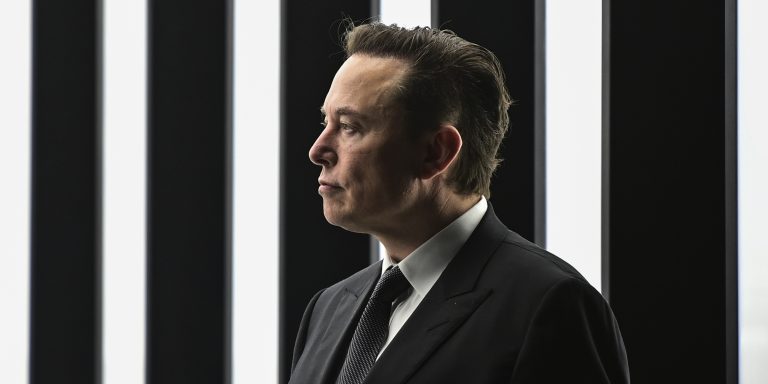INTELBRIEF
April 28, 2022
IntelBrief: What are the Potential Implications of Elon Musk’s Twitter Takeover?

Bottom Line Up Front
- Despite his promised to revamp Twitter, Elon Musk could be limited in terms of initiating drastic change and could find some of his objectives thwarted by legal restrictions and a whole host of other difficult roadblocks.
- Under his leadership Musk noted that Twitter would open-source algorithms to “increase trust,” “defeat spam bots,” and “authenticate all humans,” though turning this slogan into reality is a Herculean challenge.
- Twitter’s decision to ban former President Donald Trump for violating the platform’s codes of conduct due to his involvement inspiring the January 6 insurrection will also be revisited by Musk.
- Twitter is used differently in different countries, in some regions becoming a platform for authoritarians that sponsor smear campaigns, spread propaganda, and harass journalists, NGOs, and human rights activists.
On April 25, it became all but a formality that the world’s richest man, Elon Musk, would assume ownership of the social media giant, Twitter, in a deal worth roughly $44 billion. While the mechanics of Musk’s takeover on Twitter’s workforce merits close scrutiny, more important are the policy shifts that Musk will seek to implement and the direct impact these changes could have. Musk has been very clear that he intends to take an absolutist approach to speech over the Twitter platform, commenting, “free speech is the bedrock of a functioning democracy, and Twitter is the digital town square where matters vital to the future of humanity are debated.” These words and Musk’s long embrace of First Amendment absolutism could portend significant changes to Twitter’s content moderation policies. Yet, Musk could also be more limited in terms of initiating drastic change and could find some of his objectives thwarted by legal restrictions and other roadblocks. There are already credible reports that the deal could fall through altogether, especially given the immediate negative impact on Tesla stock.
Musk noted that, under his leadership, Twitter would enhance its product by open-sourcing its algorithms to “increase trust, defeating the spam bots, and authenticate all humans.” Turning this slogan into reality will be more difficult, but if Musk can achieve it, he’ll likely win fans across the political spectrum. While the spread of misinformation, disinformation, and malinformation (MDM) has certainly been attributable to the use of bots by state and non-state actors, humans remain the primary purveyor of false information. Authenticating human accounts is a laudable goal, but the resultant impacts on user privacy and assessing whether authentication would truly improve trust both remain open-ended questions. The difficulty, of course, will be in the details, and leaving many to wonder exactly how Musk plans to achieve his lofty objective of “unlocking” Twitter’s full potential. One popular assumption is that Musk will remove many of the important guardrails and policies that Twitter has put in place to restrict the flow of human-initiated dis/mis-information. But if numerous incidents occur in rapid succession that frame Twitter as a platform easily abused by extremists and authoritarians, Musk will be forced to address these concerns, or risk losing substantial sums of money, while potentially opening himself and the company to legal issues that could occupy already limited bandwidth.
Twitter’s efforts to contain the spread of QAnon related conspiracy theories and disinformation were ultimately helpful in limiting the extent to which QAnon’s message was able to spread. Of course, QAnon messaging never ceased on any major social media platform. Yet, the prospect of QAnon influencers possibly returning to Twitter would inevitably lead to the spread of mis/disinformation. Hosting more QAnon-connected individuals on the platform will lead to a rise in dangerous mis-, dis-, and mal-information, but also an increased likelihood that Twitter will be used as a vehicle to incite users to carry out real world acts of violence. There are concerns that violent non-state actors, including terrorists and extremists, will return to Twitter and push the limits of free speech. The European Union has already warned that Twitter must police illegal or harmful content and if it fails to, it risks being banned. Removing these guardrails will allow for an increase in doxxing, the spread of hate speech, and the proliferation of false information. Twitter’s decision to ban former President Donald Trump for violating the platform’s codes of conduct due to his involvement inspiring the January 6 insurrection will also be revisited by Musk. Trump’s return to Twitter could further exacerbate a toxic online culture in the lead-up to the 2022 mid-term elections and the 2024 Presidential election. But while the media focuses obsessively on Trump, myriad other challenges will need to be addressed.
Twitter is used differently in different countries and has a track record of being the go-to platform for authoritarian states like Saudi Arabia that sponsor smear campaigns against political opposition, spread propaganda, and harass and intimidate journalists, NGOs, and human rights activists. Given the pervasive global reach that the Twitter platform offers, the ability of Musk to reshape the platform to push his own agenda and augment his personal wealth has outsized domino effects on the democratization of information and the human security risks perpetuated by a possible increase in hate speech. If Musk’s approach is successful in mitigating insidious conspiracy theories and mis-, dis-, and mal-information, he will have improved the platform for the lion’s share of users. But if he fails, runs into resistance in implementing changes to Twitter’s algorithms, or becomes overly focused on revenue generation at the expense of user experience, it could open the door to further abuse on Twitter and in turn, create new on-ramps for real-world violence and conflict. In his new role, Musk must be judicious about the risks and take concrete steps to minimize fallout.